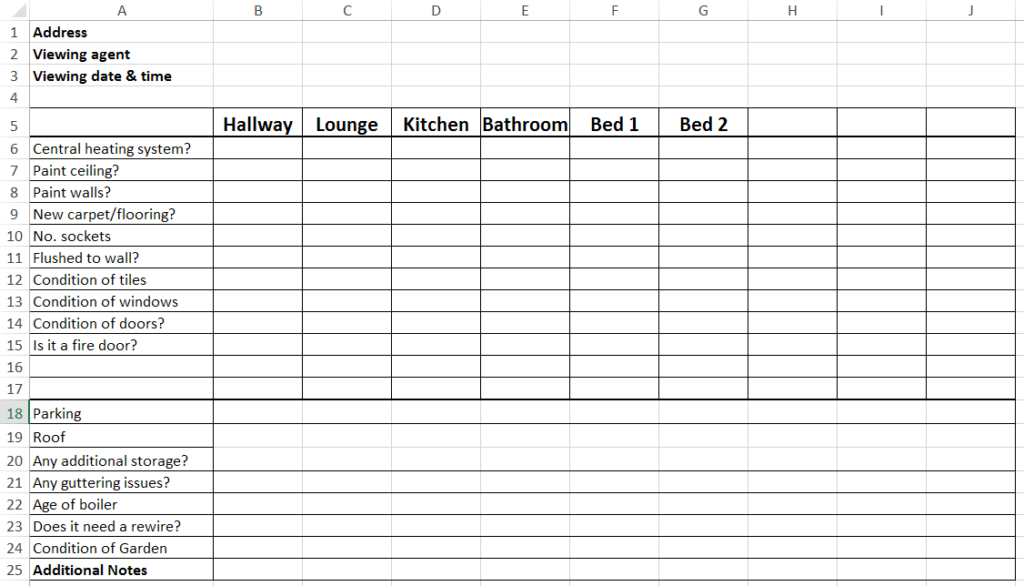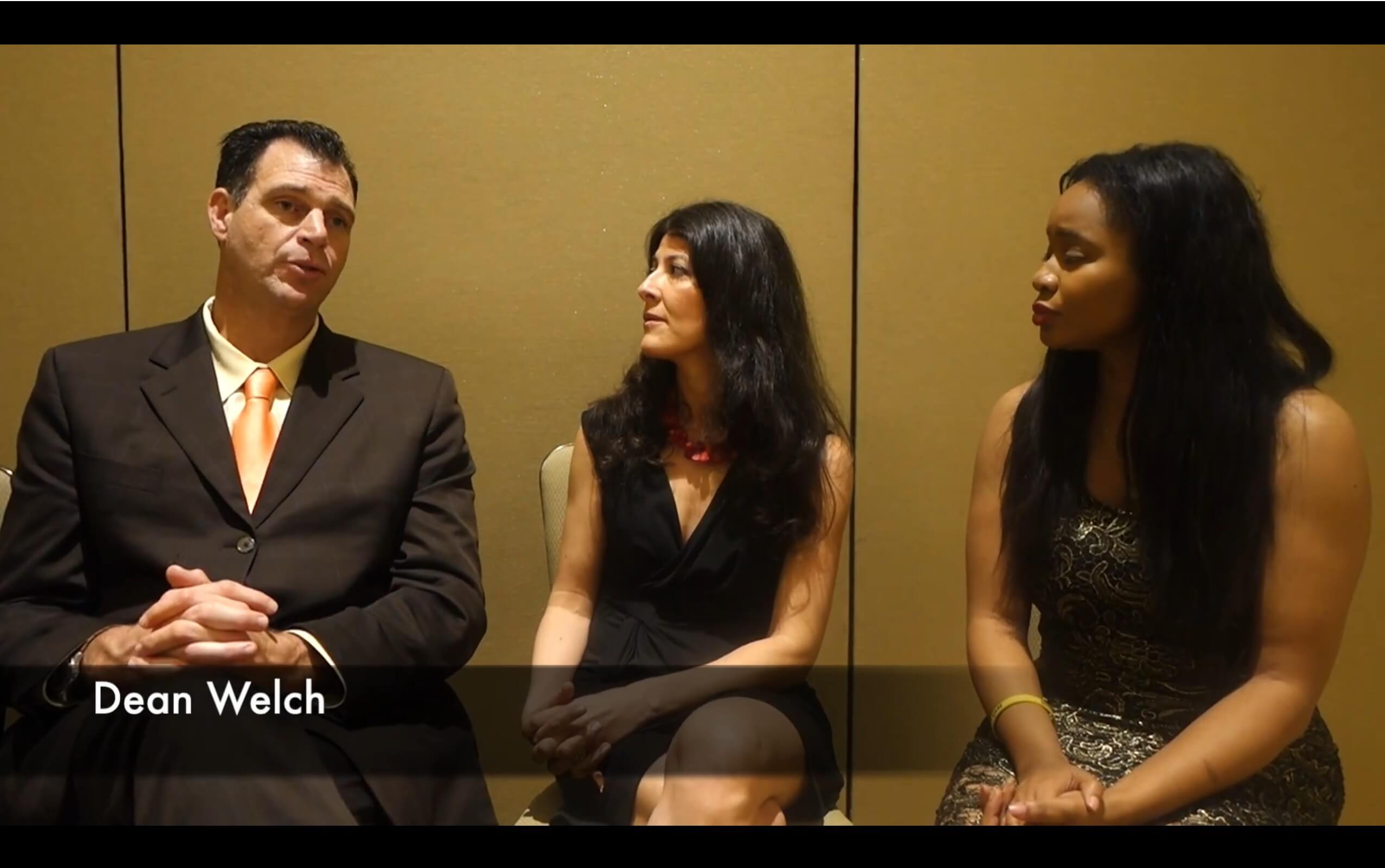When I began my property journey I enjoyed going to property courses, property networking events, and property viewings. I got such a buzz from this and naturally wanted to post all about it on Facebook. So I did.
Fast forward a few months, I needed £48,500 to buy my first property. My Dad and I had gone for a drive and chatted about how I could raise this enormous amount of money. He suggested I put out the request for it on Facebook. Out of fear, I got defensive and angrily said, “I’m not doing that! It’s a stupid idea.”
Then he made a bet with me. “If you put it on Facebook and don’t raise the money, I will give you £100. BUT, if you do raise the money, you have to give me £100.”
I quickly changed my tune and admitted that it was a clever deal. It’s a win-win.
Just so you know, to me, posting a status on Facebook asking for money was super scary. As I explained to my Dad in the car, I feared people would accuse me of being a con artist or say I was going to scam people. I thought it would also make me look desperate like I was begging.
Dad then asked me, “Are you conning or scamming people?”
I sheepishly replied “Mmmm no. I’m actually giving them a much better return on their funds than the bank. Plus I have at least two exit strategies and it will be a personal loan so even if everything goes tits up with the property, they will still get their money back providing I’ve put security in place.”
There was a pause and we both silently acknowledged Dad’s brilliance of making me think about how irrational my fear was, without him having to actually say “You are an idiot, your fear is irrational.”
So, I had committed to posting something on Facebook. But what was I going to say? I spent ages thinking about the ideal way to phrase it. I can’t remember exactly what is was but it looked something like:
“Hi friends and family, I am looking to raise £XX,XXX to purchase my first property. Am happy to beat the bank’s interest rates. If anyone wants to know more just send me a message.”
Long story short, once I put it out there, a few wonderful people got in touch and after a few email exchanges and telephone convos about exit strategies they lent me the money.
A few days after all the money had been transferred I walked into my Dad’s room, trying to suppress my proud grin, clutching £100 in cash. It was an empowering moment. The only bet I was happy to lose.
I am pleased to say all my friends and family were updated throughout the loan period and paid back in full, on time, with interest.
To make sure this story is not taken out of context, I was trying to raise a relatively small amount of money from friends and family. Please note, this is not always an appropriate method. It depends on the deal and how much you are looking to raise.
What did I learn from this experience?
1.) You need to show a track record on your social media
If I am going to ask for money on my Facebook, it gives people confidence in me if they can see a track record of property experience. Remember, experience includes handing out flyers, showing pics from viewings, talking about offers made, etc.
If you don’t have experience then show a track record of property education. Offer value to your friends on Facebook and share one thing you learned at a networking event or property seminar.
2.) Never undervalue your experience, no matter where you are on your property journey
To someone else, everything you’ve learned or experience could be priceless.
I want to tell you a quick story about one of my friends. It is not related to Facebook but it illustrates a point that may be helpful for newbies who are still figuring out the value they can offer to others.
I have a friend who hasn’t brought a property yet but he works his butt off researching the best streets in Coventry and flyering them. I know a lot of people, especially other investors would enjoy hearing about his experience of what works when flyering and what doesn’t.
Here’s the funny thing, after he has shared with investors what he does and what he has learned from the experience, do you think the investors will want to go flyer themselves? Heck no. But I bet they’d be keen to build a relationship with him. Some may even offer to put up the money if he finds a good deal. You just never know.
Sharing your learning and experience builds credibility.
Why is it important to create a digital footprint?
What is a digital footprint?
A digital footprint is the imprint you have on the internet. This imprint consists of all your social media accounts; blogs you have written or been mentioned in; news articles you may have been mentioned in; as well as things other people have posted about you.
Don’t post something you will later regret. People will see it and it will influence their perception of you.
Why is our digital footprint super important?
As you know, anything you put on the Internet stays there permanently. As in forever. Even if you think you have deleted it. It is still there. Plus, you have no idea how many people saw it before you deleted it from public view.
What we put out on our social media heavily influences our ‘friends’ and ‘followers’ perception of us. So does the information other people put on their social media about us. The scary thing is, we can’t control that. BUT we can control our response to it.
How can internet trolls help me establish credibility?
I spent ages writing a blog about
how I raised £250k in one week. Raising money is a big hurdle for some people so I thought it would be a helpful to share my experience to those that were curious.
A lady wrote a comment underneath it. She nit-picked at the blog, questioned why I hadn’t shared XYZ information, why an image was in $ not £, and then shared a link to her blog.
I wasn’t quite sure what to make of her comment. Did she make some good points? Was she attacking me? Was she taking time to add value to the conversation? Was she trying to promote her blog?
I have no idea. Nor does her intention matter.
The most important part is how I responded. The response is what builds people’s credibility and reputation. If you ever encounter an Internet troll and wish to respond, try using these guidelines:
1. Only respond when you are in a calm and happy mood
2. See their comments as neutral. If you view them as attacking, you are likely to respond defensively or passive aggressively. Neither is a good look for your credibility
3. Respond as authentically as you can. A sense of humour doesn’t hurt either 😉
4. Is there any truth in their comment? If so, paraphrase their comments into constructive criticism. If we listen to constructive criticism we become better. Better as writers, better as investors, and better as people. Once I got over the initial “Ah they’re so mean! It makes me sad not everyone likes me” feeling, I start to see them as a team mate who is pushing me to become better. I see that as a gift.
I’ll let you read my response and form your own opinion. It is not a perfect response but I am still learning.
(Scroll down to the bottom. My comment is below Ben’s)
How can I take control of my own digital footprint?
Many of us take control of our digital footprint by writing a blog, posting on Facebook, Twitter, Instragram pics etc.
Here are some ideas for you to build up your property credibility:
- When you attend a property training seminar, take a picture and upload it to Facebook
- When you do viewings, take a picture and upload it to Instragram
- When it is raining, you are on your 10th viewing of the day and still motivated, Tweet about it.
The 5 key takeaways from this article


































